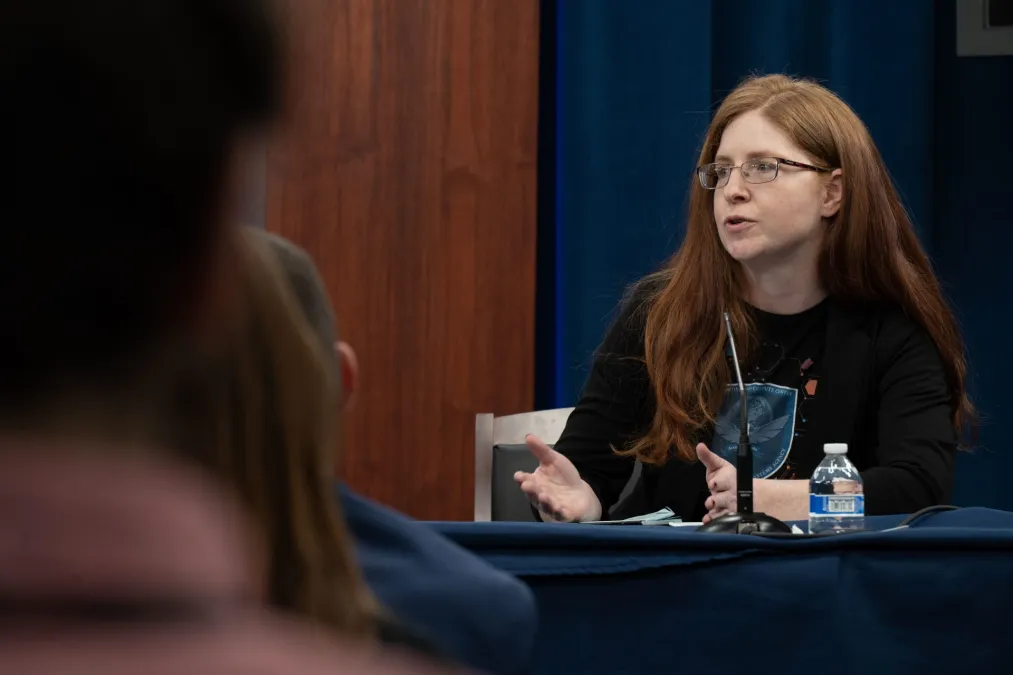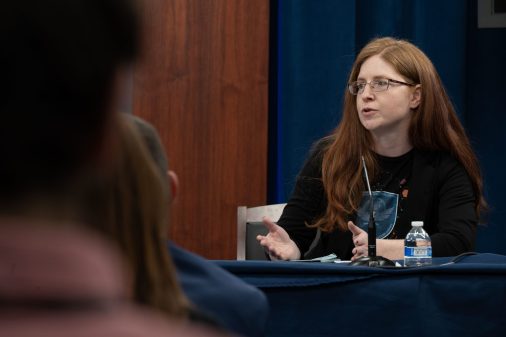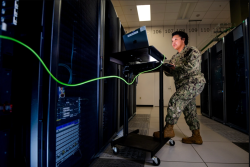DISA conducting beta testing of cloud capability outside the continental US with Stratus deployment

The Defense Information Systems Agency is engaged in beta testing of a “post minimum viable product” as it looks to further test and expand its cloud capability outside the continental United States, according to a top IT official.
DISA has defined and broken down its cloud efforts into three tiers. They include: strategic, which is focused on the U.S. where users have a reliable and persistent connection; middle or operational, where applications and data are pushed outside the United States but the management of the application has to reach back to the homeland; and tactical edge, which is self contained.
A “massive” overseas cloud effort, which DISA Hosting and Compute Center Director Sharon Woods described as a “post minimum viable product,” is doing beta testing with an OCONUS deployment of Stratus — DISA’s private cloud instantiation and replacement for milCloud.
DISA is using the operational layer, starting at Ford Island, Hawaii, to get the applications and data closer to the point of need.
“We’re still meeting OCONUS cloud needs and in fact, I would say down the road, we’re thinking about how do we sever that management reach-back need? How do we actually manage locally?” Woods said during a webcast hosted by Defense One on Tuesday. “I think there’s a lot of flexibility and moving out with that Stratus private cloud, OCONUS capability.”
While Stratus exists within the U.S., officials are expanding its use.
“That’s the beta test where it’s not full-blown production, but we have an existing capability that we can leverage. All we’re doing is extending it out OCONUS to create that separate region,” Woods said.
Part of the experimentation includes determining if officials can get Stratus to be self contained in that tactical sphere.
“I want to see if Stratus can also translate from meeting the middle operational tier to can we get it to a place where it’s actually meeting a full-blown tactical edge need as well,” Woods said. “I think to start this year, we’re looking at that beta test and getting into production for OCONUS Stratus region. I think a next year type activity would be: alright, how do we take it to that next step and get to the full-blown tactical edge?”
Woods said she wants to start pushing more into the tactical sphere and is starting with Ford Island because the Indo-Pacific is a vast area of responsibility. The Department of Defense has named China as its “pacing challenge.”
“With the China threat, it is so critical to make sure that our resources are forward deployed, because if something happens, that is not the time to figure out how to support your applications and data overseas, especially because we don’t know what’s going to happen to the transport, we don’t know how isolated certain locations are going to become,” Woods said.
Eventually, officials want to push some capability to Yokota, Japan, where they already have a data center, but Ford Island was an easier starting point logistically.
Yokota is “going to be a really important location,” Woods said. “That is definitely a location that we want to make sure we can provide capability as well.”
In addition to Stratus, DISA is also in charge of running the high-profile Joint Warfighting Cloud Capability (JWCC), DOD’s enterprise cloud effort awarded to Amazon, Google, Microsoft and Oracle.
Woods stressed that for hosting and computing to work across the globe, the department needs to have a multilayered and diverse set of capabilities that can do different things.
The JWCC vendors have a plethora of different capabilities that can be employed at the operational and tactical edge. Together, JWCC and Stratus provide that multilayered redundancy, Woods said.
Stratus also provides the ability to host applications that might not be ready to move into a public cloud, but a need for an OCONUS capability still exists.
“For the Hosting and Compute Center, it’s really important that we’re meeting the full breadth of requirements for the department for hosting and compute and not just one particular area,” she said.






